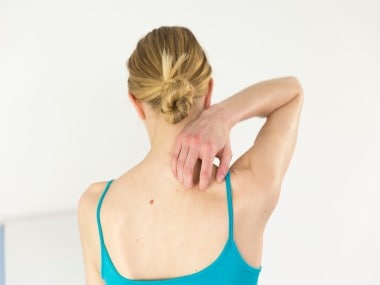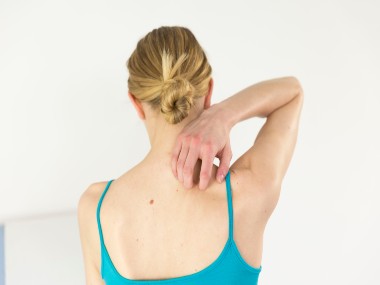This situation might sound oddly familiar: you are in a solemn, formal setting and it is crucial that you maintain your dignity. Suddenly, there is an unquenchable and undeniable urge to scratch an itch that seems to have started out of nowhere. The more you try to ignore the itch, the more it wants to be scratched. Despite yourself, you give in and give your underarm a not-so-discreet scratch. The relief is instant and extremely satisfactory. If you have ever wondered about why we itch, and why we get itches at the most inconvenient of times, you are not alone. It turns out that ancient Romans worried about itching, too. They prepared salt baths to find relief from the urge and one of Dante’s version of hell consisted of a pit in which the cursed scratched themselves pathologically to their bones. [caption id=“attachment_7884051” align=“alignleft” width=“380”]
 Representational image. Image source: Getty Images.[/caption] But only in the last decade have we arrived at a more concrete understanding of the chemical pathway involved in itching. Previously it was thought that an itch was on the same spectrum as pain, just a duller version of it. A research paper published in Science in 2015 challenges this understanding.
Representational image. Image source: Getty Images.[/caption] But only in the last decade have we arrived at a more concrete understanding of the chemical pathway involved in itching. Previously it was thought that an itch was on the same spectrum as pain, just a duller version of it. A research paper published in Science in 2015 challenges this understanding.
Why we itch
Our skin is a barrier that protects us against the outside world, our first line of defence against any harmful intruders. Think of a mite or insect crawling on your skin - the pressure exerted by them is very little but a bite from them may have terrible health consequences. The physical act of itching can remove the source of irritation and prevent a breach into the inner sanctum of the body. Similar to yawning, itching also has a psychological dimension wherein you may scratch yourself if the person next to you is doing it. It is reasonable to assume that this is because the shared environment implies shared pathogens - perhaps there are mites crawling on you as well that need to be brushed off!
The dedicated itching chemical
Back to that chemical pathway: assume that a mosquito has bitten you. The bug injects its saliva at the site, which acts as an anticoagulant and prevents the clotting of blood. The body’s response is to release histamines which increases blood flow to the area (this is what causes the flare or swelling) as well as engages the pruriceptor lining of the skin - pruriceptors are nerve endings that sense itching. This leads to the release of Natriuretic polypeptide B (NPPB). NPPB travels up the spine and tells the brain that it is time to scratch the area. NPPB is a subset of neurotransmitters involved in responses to pain and heat-related stimuli. The 2015 paper showed that NPPB is central to the itching response - without it, there would be no scratching. In the study, mice were bred without the NPPB variation. The result: they responded to pain and heat but could not experience itching. What this means is that scratching, in fact, follows a different pathway from pain, thus contradicting previous knowledge.
Dousing embers with a flame
Why is it that itching brings some temporary relief to the spot? The act of stimulating the area engages pain circuitry. When you scratch, you intentionally stamp out the itching sensation by replacing it with a mild sort of pain. Scratching engages a larger part of the body and the neurochemical response travels to the brain and distracts it from the prick that started it all. This explains why the urge to itch is so tempting - it acts as a momentary balm.
The future of itching
Pruritus, or itching, can become a huge problem if it is caused by a disease or underlying disorder. While this research is an important first step in helping those who suffer from neuropathic (chronic) itching, there is a long way to go still. This is because NPPB is released by the heart and plays a role in regulating blood pressure and sodium. Until the complexities of this are not understood, it may be harmful to tinker with NPPB levels in humans. For more on this topic, please read our article on Itching: Types, Symptoms, Causes, Prevention . Health articles in Firstpost are written by myUpchar.com, India’s first and biggest resource for verified medical information. At myUpchar, researchers and journalists work with doctors to bring you information on all things health.
)